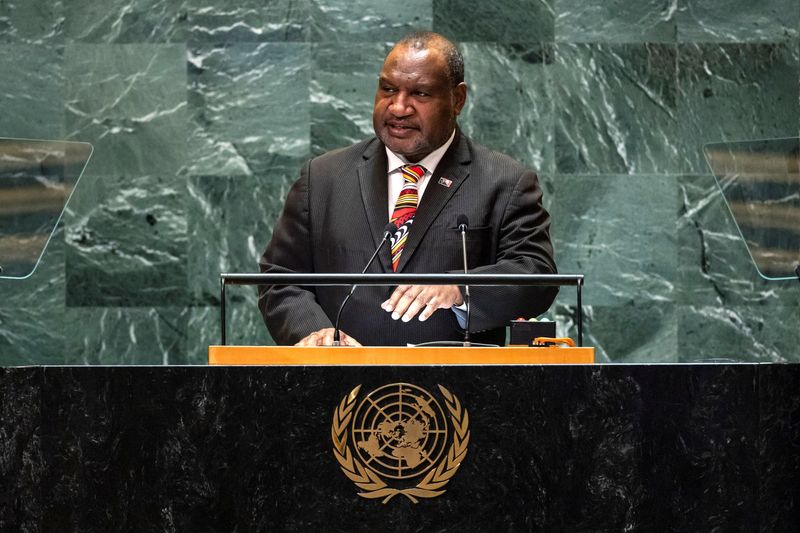By Kirsty Needham
SYDNEY (Reuters) - Bougainville must be able to fund at least half of its budget if the Pacific archipelago's aspiration of political independence from Papua New Guinea is to be a success, PNG Prime Minister James Marape said on Wednesday.
Bougainville President Ishmael Toroama is seeking international investors to re-open one of the world's biggest copper mines, with Marape backing his authority on Wednesday to make business decisions on the mine as the autonomous region travels a pathway to independence.
Bougainville was PNG's economic powerhouse for two decades until 1989, when a bloody civil war erupted over revenue from Panguna, the world's third-biggest open cut gold and copper mine and operated by Rio Tinto (LON:RIO).
Bougainville voted for independence under a 2001 peace process in a referendum five years ago but PNG's parliament is yet to endorse it. A New Zealand mediator was recently appointed on the matter.
"We start with economic independence as a fundamental basis, because once you have the money you are able to sustain," Marape said at a resources conference in Sydney.
Bougainville's internal revenue of 7% was not sufficient to "get up, get going", he said. "We need to raise this at the very earliest to about 50% of funding."
Toroama said significant progress had been made this year in redeveloping Panguna, with a copper exploration licence issued in January to Bougainville Copper Limited (BCL), majority-owned by the Bougainville government.
BCL has projected revenue of $36 billion from the mine over 20 years, with copper an essential input for renewable energy.
An environmental and social impact assessment on Rio Tinto's legacy mining operation delivered this month was also a key step in re-opening the mine, Toroama said.
"We have to further sign an MOU with Rio Tinto and Bougainville Copper Limited for commencement of works of ageing infrastructure that pose imminent and severe risks to affected communities and further the talks," he said.

The original mine's strong revenue flows to PNG came at the expense of local communities and the local environment, resulting in civil unrest exacerbated by political factors that led to a war costing 20,000 lives, Toroama said.
"Bougainville continues to stand out as a lesson, a warning, a reminder of what not to do in resource sector development," he added.